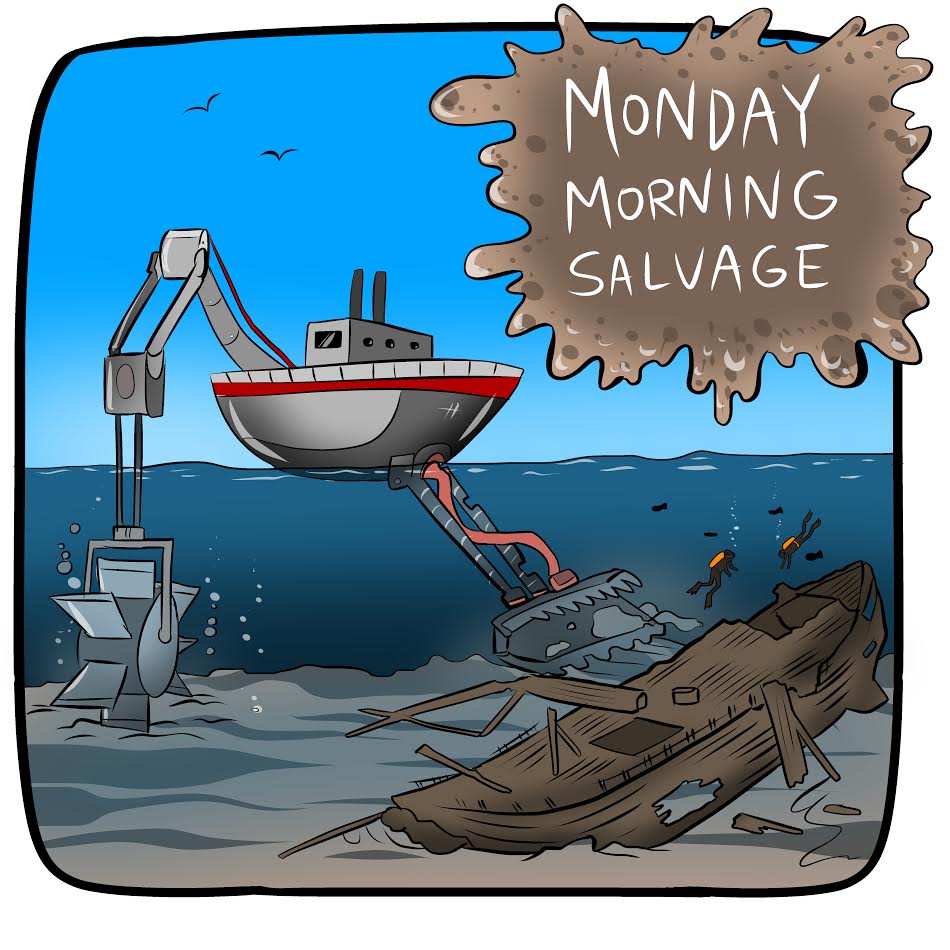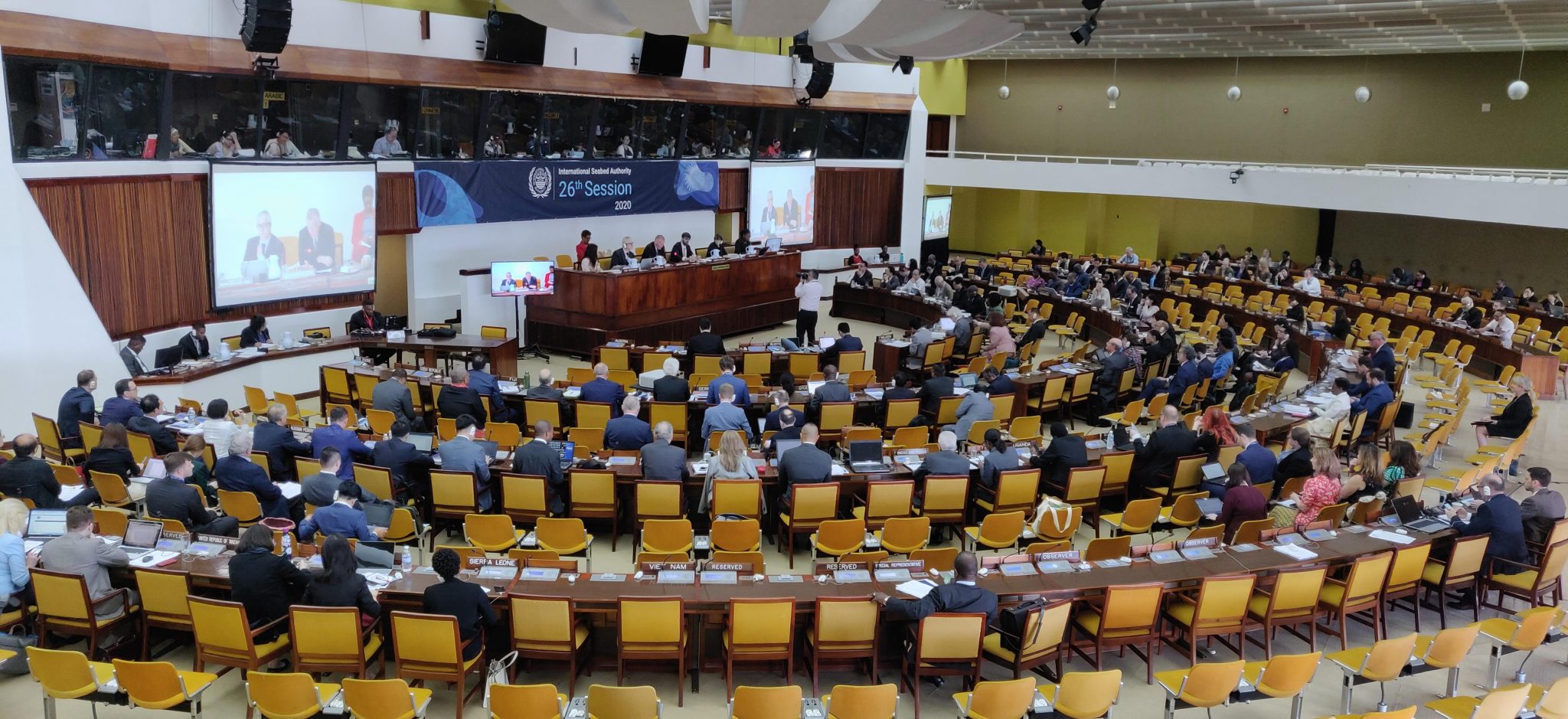
For all our US-based Readers: Happy President’s Day! For everyone else, this is the reason none of you USian colleagues are answering e-mails. Unless they are, in which case, *grumble grumble grumble* *something about work-life balance*
Flotsam (what we’re obsessed with right now)
- The ocean is full of garbage and even the deepest trenches aren’t safe. Here’s an interview I did with KSPN Saipan where I talked about the garbage the precedes us everywhere we go.
- Also: Banned chemicals persist in deep ocean. This seems important.
Jetsam (what we’re enjoying from around the web)
- Deep-sea mining causes long-lasting ecological damage. No commercial deep-sea mining operations are yet underway, but the International Seabed Authority has issued several exploratory mining licenses. We are now approaching the ten-year anniversary of the first time I said Deep-sea Mining will happen in the next five years.
- Every time you open or close a fishing season, that’s a new regulation. Trump executive order could affect NMFS regulation.
- How One Brilliant Woman Mapped the Ocean Floor’s Secrets. Marie Tharp’s incredible maps were integral to the acceptance of the plate-tectonic theory.
- Take a moment to study the history of Fake News (TM). The Cottingley fairy hoax of 1917 is a case study in how smart people lose control of the truth.
- In a Washington State lake, two of the most globally invasive crayfish species are duking it out. Should we step in?
- Global ‘fish wars’ could break out as climate change and rising nationalism fuel competition for world’s oceans. Conflicts like the infamous Cod Wars between the UK and Iceland could erupt across the globe unless countries co-operate to manage stocks effectively, expert warns.
- Hey scientists, we’re not magically immune to fake news. How mammoth cloning became fake news. George Church, artificial wombs, elephant embryos, and a gullible science media.
- Panel to discuss deep-sea mining at AAAS Meeting. $10 to the first panelist to say Deep-sea Mining will happen in the next five years.
Lagan (what we’re reading from the peer-reviewed literature)
- Goldman and friends (2017) Ensuring scientific integrity in the Age of Trump. Science. DOI: 10.1126/science.aam5733.
- Baker (2017) Exploring the ocean for hydrothermal venting: New techniques, new discoveries, new insights. Ore Geology Reviews. DOI:10.1016/j.oregeorev.2017.02.006.
- Höckendorff and friends (2017) Characterizing fish responses to a river restoration over 21 years based on species traits. Conservation Biology. DOI: 10.1111/cobi.12908.
- Lee (2017) DNA amplification in the field: move over PCR, here comes LAMP. Molecular Ecology Resources. DOI: 10.1111/1755-0998.12548.
Driftwood (what we’re reading on dead trees)
- Cat Wars: The Devastating Consequences of a Cuddly Killer by Peter P. Marra. Cats may be our most invasivest invasive species ever. Keep them inside, please.
Derelicts (favorites from the deep archive)
Today, we’re celebrating Dr. Chris Parsons, with a look back at some of his earliest articles, including one of our most consistently popular posts ever!
- Blackfish: the Science Behind the Movie.
- Distracted by abstracts: Tips for writing a good abstract for a scientific conference.
- Marine Conservation, Inspiration and a Great Big Geek.
- No you’re not paranoid – there is a bias against publishing marine conservation papers.
Feel free to share your own Flotsam, Jetsam, Lagan, Driftwood, and Derelicts in the comments below. And, of as always, if you enjoy Southern Fried Science, consider contributing to my Patreon campaign to help us keep the servers humming.

Hi Andrew — Enjoy your work as always. Just wanted to note on the 2:1 EO, hearing that many fishery regulations likely to be exempt because they are interpreting it to apply to $100m+ regs only, so most fishery regs won’t apply. Also there may be a way to consider certain fishing quotas, etc. “enabling” regulations that would not be covered by 2:1. Finally, even the 90 day freeze has been interpreted to allow most fishery regulations to go forward HOWEVER the statutory efforts to make regulations harder to enact do not have this flexibility and could wreak serious havoc on the regulatory process generally and fisheries regulations specifically. Best, Monica Goldberg